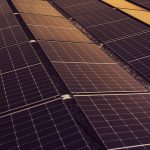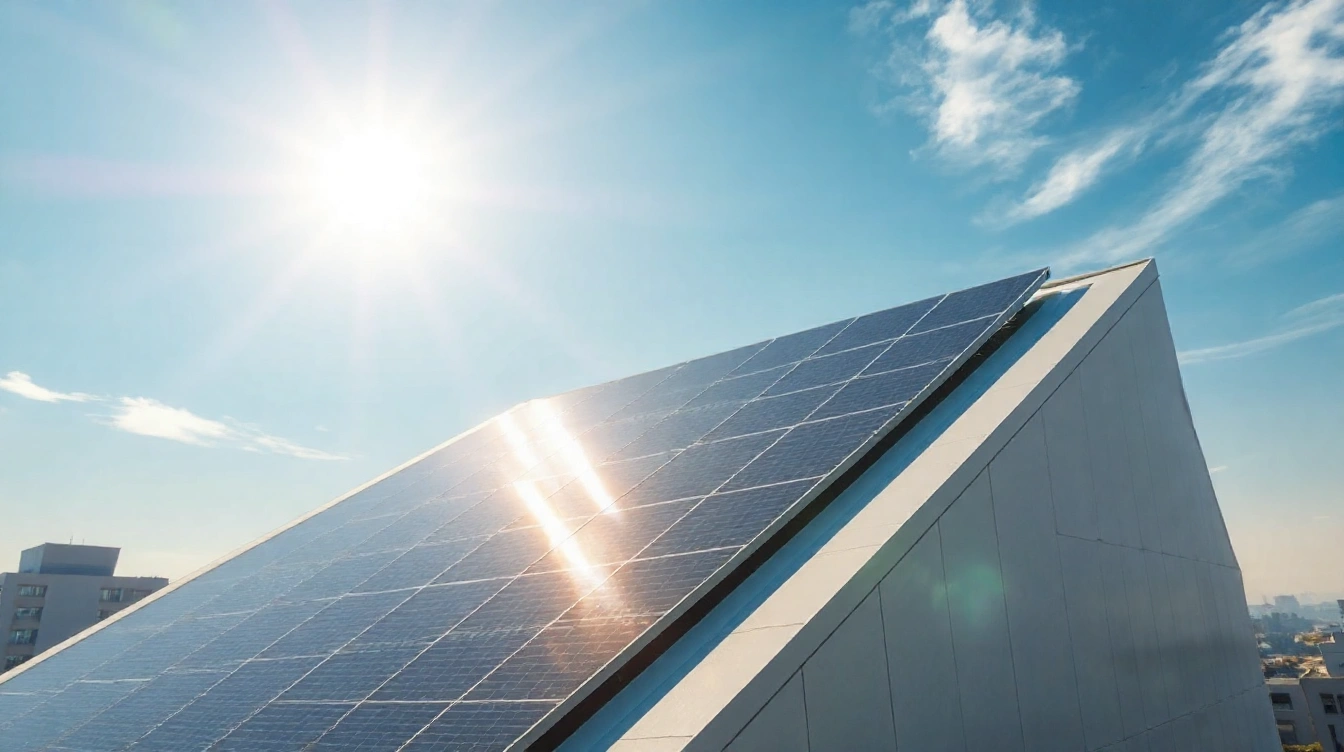Unlocking substantial cost savings starts with harnessing commercial solar solutions that go beyond simple energy production. Efficient systems significantly reduce operating expenses while elevating your business’s cost efficiency. Optimised solar energy not only boosts financial performance but also maximises return on investment, paving the way for long-term, sustainable savings. This approach transforms your energy strategy into a powerful asset that drives measurable economic benefits.
Maximising Business Cost Savings with Commercial Solar Solutions
Small text about understanding cost efficiency benefits.
Additional reading : How do cultural differences impact business interactions in the UK?
Commercial solar savings present a compelling opportunity for businesses aiming to reduce operating costs effectively. By integrating solar energy systems, companies can significantly lower their electricity bills, which comprise a substantial portion of business expenses. This direct reduction in energy costs translates into improved business cost efficiency, freeing up capital for reinvestment or expansion.
Energy efficiency achieved through commercial solar solutions not only cuts costs but also stabilizes them. Unlike traditional energy sources, solar energy provides predictable, often lower-cost power that shields businesses from volatile utility rates. This stability supports better financial planning and resilience against market fluctuations in energy prices.
Also to see : How can UK businesses take advantage of e-commerce trends post-pandemic?
The financial impact on operating costs extends beyond electricity bill savings. Installation of commercial solar systems can qualify for various tax incentives and rebates, further enhancing cost efficiency. Moreover, investing in sustainable energy improves a company’s reputation, potentially attracting eco-conscious customers and investors, which indirectly contributes to economic benefits.
Businesses looking to maximize commercial solar savings should consider tailored solutions that match their energy usage patterns and facility needs. For more comprehensive guidance, exploring resources like Solar Panel Installation for Businesses can provide actionable insights into optimizing cost efficiency through solar energy.
Increasing Efficiency to Boost ROI with Commercial Solar
Efficiency stands at the core of maximizing solar ROI for any business investing in commercial energy solutions. Simply put, a higher solar panel efficiency means more electricity generated from the same amount of sunlight, directly translating into significant cost savings and faster payback periods. Investing in commercially available panels that boast advanced photovoltaic technologies can boost overall system output, giving businesses a competitive edge in energy management.
Several factors influence solar panel efficiency for businesses. Panel quality and the type of photovoltaic cells used are primary. For example, monocrystalline panels typically deliver better efficiency than polycrystalline alternatives. Additionally, installation angle, shading, and local climate conditions play important roles in the system’s performance. Regular maintenance, including cleaning panels and monitoring inverter functionality, keeps energy output near peak levels throughout the year.
Over time, optimized commercial energy solutions centered on high-efficiency solar panels yield considerable long-term financial gains. When systems are tailored to business energy demand patterns and integrated with smart energy management, companies can reduce dependency on grid electricity and hedge against rising energy costs. Investing wisely in solar infrastructure enhances both sustainability goals and financial outcomes a compelling combination for enterprises aiming to maximize their solar ROI.
Real-World Examples of Business Savings Using Commercial Solar
Understanding solar case studies is crucial when evaluating commercial solar investments. These case studies provide concrete evidence of cost savings and environmental benefits realized by businesses across various industries. One compelling example involves a mid-sized manufacturing company that reported a 35% reduction in electricity costs within the first year of switching to commercial solar. This translates to significant savings that boost the company’s operational budget and competitiveness.
Businesses frequently share business solar success stories detailing how commercial solar panels have improved their financial health. Testimonials underscore not only cost reduction but also reliability and improved corporate image. For instance, a retail chain emphasized the predictable energy costs gained through solar installation, mitigating the impact of fluctuating energy prices. Such experiences highlight that investing in commercial solar panels is not merely a green choice, but a sound financial strategy.
Exploring commercial solar ROI through quantitative analysis helps demystify the savings potential. On average, companies recover their initial investment in solar panel installation for businesses within 3 to 6 years, after which the energy they produce is virtually free. Moreover, by integrating solar systems, many businesses benefit from tax credits, and reduced utility bills, and sometimes generate revenue by selling excess power back to the grid. This robust ROI proves that commercial solar is an economically savvy decision, aligning sustainability goals with tangible financial benefits.
For those interested in transforming their energy consumption and unlocking savings, exploring detailed Solar Panel Installation for Businesses can provide tailored solutions designed to maximize financial returns.
Steps to Implement Efficient Commercial Solar Solutions
Understanding the path to successful solar adoption for your business
Assessing your business’s suitability for solar begins with analyzing energy consumption patterns and site conditions. The solar implementation process starts by evaluating if your rooftop or property has adequate sunlight exposure, minimal shading, and structural integrity to support panels. Additionally, reviewing your current energy bills helps determine the size and scale of the commercial solar installation needed.
Next, choosing the right commercial solar provider and system is crucial. Select a provider with proven experience in the business solar adoption sector, offering tailored solutions that align with your company’s energy needs and budget. Compare options such as different panel types, inverter technologies, and financing models to optimize performance and return on investment.
The implementation timeline and key milestones involve several phases: initial site assessment, system design, permitting, installation, and commissioning. Each step requires coordination between the solar provider, local authorities, and your internal team. Being aware of these stages allows your business to ensure the solar implementation process proceeds smoothly and efficiently.
Successful solar implementation ensures your business harnesses clean energy effectively, reduces electricity expenses, and supports sustainable initiatives. For detailed guidance, consider exploring specialized resources on Solar Panel Installation for Businesses.
Incentives and Support for Efficient Commercial Solar Investments
When considering commercial solar panels, understanding available solar incentives is crucial to maximizing your return on investment. Businesses can benefit significantly from various financial incentives designed to lower upfront costs and improve long-term savings.
Government support commercial solar programs typically include business solar grants, tax credits, and rebates. For example, the Federal Investment Tax Credit (ITC) allows businesses to deduct a significant percentage of their solar installation costs from federal taxes. This incentive alone can reduce overall expenses by thousands of dollars, making solar adoption more affordable.
In addition to federal incentives, many states and local governments offer additional rebates and grants. These can vary widely depending on location but often provide direct financial assistance or ongoing benefits like property tax exemptions for solar installations.
Leveraging these government supports involves understanding eligibility criteria and application processes. Businesses should actively seek out information on solar incentives and collaborate with experienced solar installers who can guide them through obtaining available business solar grants and rebates. Combining these supports with solar incentives helps unlock substantial savings and accelerates the path toward clean energy use.
Practical Guidance for Unlocking Business Savings Through Solar
Maximizing solar savings guidance starts with a strategic approach to business energy management. To ensure your commercial solar system delivers consistent savings, it’s essential to follow best practices for maintaining optimal solar system efficiency. Regular inspections of solar panels help detect buildup of dirt, debris, or shade that could reduce energy output. Cleaning panels periodically and trimming nearby foliage leads to improved performance, directly impacting your business’s cost savings.
Evaluating ongoing solar performance is crucial to understanding the real-time benefits of your investment. Using monitoring tools, businesses can track energy production against their consumption patterns. This not only confirms expected savings but also highlights opportunities to optimize energy use. For example, shifting high-energy processes to daylight hours can increase the utilization of solar power, further reducing electricity bills.
Businesses interested in commercial solar solutions should consider a phased plan. Start by obtaining a professional assessment of your property’s solar potential and energy needs. Leveraging expert advice gives you clearer insight into expected financial returns and available incentives. To kick off this transformation, explore resources on Solar Panel Installation for Businesses to connect with trusted providers and support your journey to greater solar savings. Implementing a holistic business energy management strategy is the key to unlocking sustained savings and maximizing the value of your commercial solar investment.











